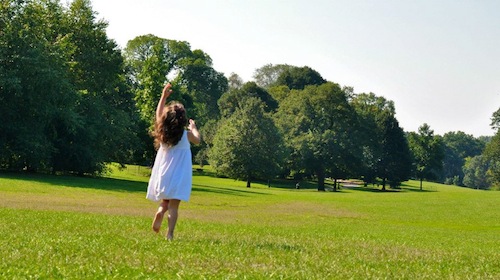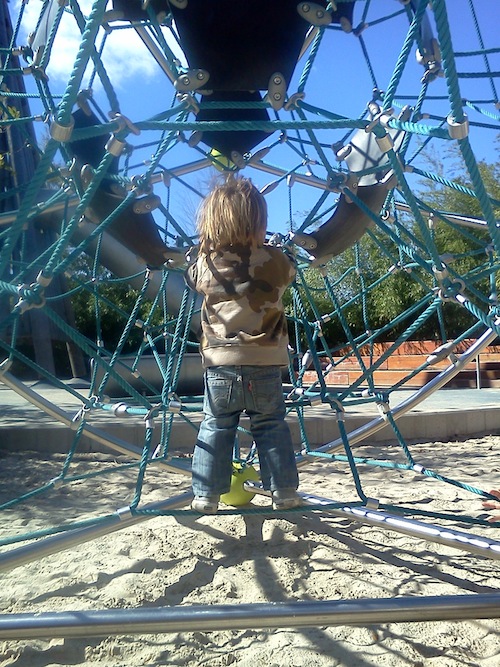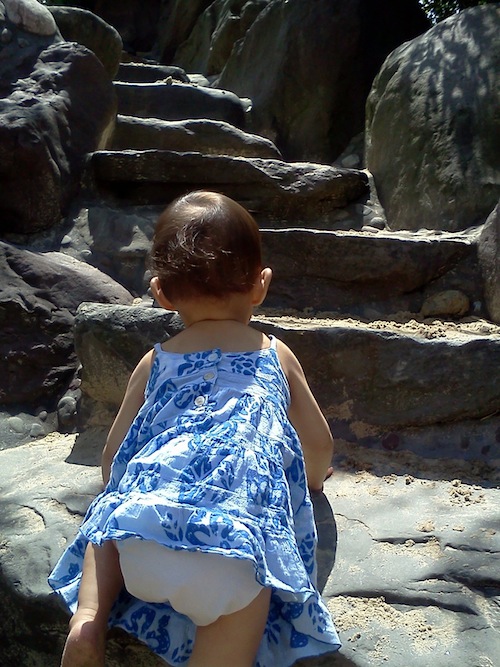Is the phrase “be careful” making us less safe?
There is a moment on every trip where I recognize just how embedded in my being the cultural norms from my home country really are. Like most travelers, I seem to see norms revolving around eating, social interactions, personal space, even pace of walking pop up around almost every corner as I explore foreign streets. But every once in a while a “bigger” norm comes into focus and I start pondering whether I am happy with the price I am paying to have it rent space in my brain.
One of the concepts that has been embedded the deepest in our collective American psyche is fear.
Fear of strangers, fear of immigrants, fear of change, fear of accidents, fear of pain, fear of sickness, fear of being taken advantage of, fear of being judged. We seem to love our fear, wrapping it around our language, our interactions, and our opinions like a much-loved blanket. We base our biggest and our smallest life choices around the concepts of “fear” and “safety”- it’s not even just a concept or a feeling anymore, it’s a way of life. Where to buy a house, which school to send our children to, what car to buy, what advice to take, which job to accept, how to treat our illnesses, who we interact with, even what clothes to buy are all decisions we make on a daily basis, out of fear. By far, the #1 reason I hear from people as the reason they do not travel, especially long term, is fear- fear of the unknown, fear of danger, fear of things that are different.
Perhaps worse than the understanding that fear is a big part of our culture is the realization that we communicate our fear continuously in the simplest of ways. Take for example our constant need to shout, “be careful!” to any child climbing a jungle gym, running in the park, wrestling in the grass, digging furiously in the sand, climbing a tree, eating an ice cream cone with gusto, turning cartwheels, jumping on a trampoline, balancing on a curb, or otherwise using their bodies and exploring their own limits.
What is the constant reminder from an outside source to “be careful!” doing to our kids? Could we possibly be making them LESS safe? I think so.
When we shout “be careful!” we instantly divert a child’s attention from the task at hand. They are no longer paying attention to that last rung on the ladder, they are paying attention to us and trying to dechiper what we want them to do. Every time we say those two words we rob them a little bit more of the freedom to assess their own ability and push themselves just a little further. Soon thoughts of escapades involving far off lands, climbing very tall trees, and balancing on curbs that are obviously really Olympic balance beams, turn into thoughts about what may or may not be “safe”. We are wiring their brains to look for danger instead of possibility and to seek outside understanding of “safety” and fear instead of looking within to find their own compass on their individual limits.
So, why does this matter to a traveler? Because if you really think about it, most of us carry around the accumulation of all those adults yelling “be careful” as we climbed, explored, and got just a little closer to breaking free. It holds us back, if ever so slightly, from fully engaging. Many long term travelers are re-wiring our own brains. We are taking stock of our culture and the baggage it brings- both positive and negative- and learning to listen more to our guts than to our embedded culture. We are starting to recognize that bad things (and extraordinary things) can happen anywhere and that a culture with a strong basis in fear might not get us as far as we want to go.
But what about everyone who is too scared to venture out? Could all of those exclamations of “be careful” be a part of the weight that binds them to their “safe” corner? What if one of the best ways we could encourage a new generation of travelers was to hold back as many “be carefuls” as we could?
Don’t get me wrong, I have fears too. Like most people, I have fears about difficult journeys and “dangerous” places that need to be almost continually unraveled so that I can enjoy and participate fully in my own journey. I’m not immune to fear, I am just starting to recognize that a good portion of this fear may not be mine. But what I am most afraid of is communicating to our children that this world is too scary to explore and perpetuating the thought that we should be focusing on being careful and not on the experience at hand.
I wonder, could creating a culture based on exploration rather than fear be as simple as reflecting on the language we use and changing it where appropriate? It just might be. We can argue that there are so many other factors involved, and there are. But considering the fact that one of the most common expressions of our culture is our language, it’s probably a good place to start. We control our language. We choose what we communicate and how we influence our youngest members in society. It’s a choice- a choice that is adjustable on an individual level.

So, to all the climbers, jumpers, dreamers, tumblers, diggers, runners, and explorers I say this…. be engaged, be confident, be dedicated to discovery, be wildly idealistic, be adventurous, be creative, be free, be brave enough to listen to your own inner voice, and as much as you can, be consciously aware. But whatever you do, don’t “be careful.”
How have your fears affected your journey? How have you overcome them?



May 29th, 2014 at 12:00 am
[…] messages we repeat most often to our children (whether verbal or otherwise) are the building blocks to the society we […]
June 16th, 2015 at 11:23 pm
Well said! I can’t stand this phrase. Despite it being an attempt for someone to show they care it places energy in unproductive channels and is a projection of the speaker’s inner fear of the world that I am NOT interested in taking on.